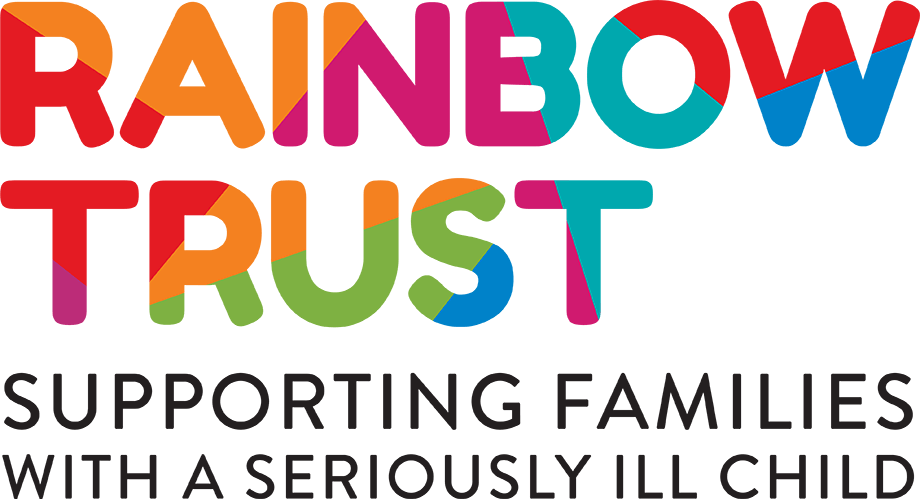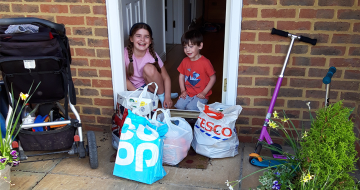Date published: 16 December 2020 by Digital Team
As an extraordinary year comes to an end, we reflect on 12 months of our policy and influencing work.
Increasingly a factor when families are referred for Rainbow Trust support, parental mental health when caring for a life-threatened child took centre-stage back in January when we published our report, Parents Matter. The report shared parents’ experiences of coping with the anxiety, fear and stress of caring for their child, and urged health and social care professionals to recognise parents’ needs. It also listed parents’ own tips to others in the same situation.
February saw a flurry of media coverage ahead of Statutory Parental Bereavement Pay and Leave (also known as Jack’s Law) becoming a reality in April. For the first time ever, employed parents who are bereaved of a child aged under 18 now have a legal entitlement to two weeks of statutory leave. Previously any leave was purely at the discretion of an employer. Having backed the campaign behind the new law, Rainbow Trust was featured in the Guardian newspaper as well as on BBC World News alongside bereaved father Adam Proops who spoke movingly about his own experience when his daughter Iris died, aged two.
Then the pandemic shook all plans off their course. Families, who were already anxious about their seriously ill child, had to adapt to the first national lockdown, the delaying of many medical appointments and non-urgent treatment, the closure of schools, the care of healthy siblings, and the falling away of their usual support networks and services. Parents visiting a baby or child in hospital faced new restrictions which caused much heartache.
Despite the immense challenges, and the cancellation of large fundraising events, Rainbow Trust succeeded in switching much of its support to virtual means almost overnight. Family Support Workers kept in touch with parents by telephone and text messages, and set up virtual support sessions for children, including story times, competitions and craft. Many Family Support Workers also collected essential food and medicine for shielding families before priority grocery deliveries were established, and dropped activity packs to doorsteps to occupy seriously ill children and their siblings.
Our surveys of families receiving Rainbow Trust support showed just how important our service was, with half of families telling us that Rainbow Trust was their only source of support, or one of just two sources of support, at that time.
Meanwhile at a national level, Rainbow Trust joined calls for emergency funding for charities, provided evidence to parliamentary committees, briefed MPs and peers ahead of debates, and responded to important new academic research. This revealed that the number of children and young people living with life-threatening and life-limiting conditions has trebled in the last 17 years.
As shielding advice changed in the summer, more families were able to receive socially-distanced support from a Family Support Worker, where local rules allowed, and some siblings had trips out with their Family Support Worker, beyond the end of their garden, for the first time in many months. We published a new briefing on parental mental health during the pandemic, urging local and national government to prioritise mental health and respite services for families.
Moving into the autumn, our latest report, Pandemic Pressures, detailed the experiences of families with a seriously ill child since March. Sharing the stories of parents separated from their critically ill baby, families who had strictly shielded throughout the period, and innovations such as our online Dad’s Group, the report won national and regional media coverage and prompted a parliamentary question on remote education for Clinically Extremely Vulnerable children. The value of our work was also cited in a report by the House of Lords’ Public Services committee.
We also joined calls for increased funding for respite and Short Breaks but were disappointed by the Chancellor’s Spending Review in November. All eyes are now on the expected multi-year Comprehensive Spending Review in 2021 which has the potential to address the longstanding gap in social care funding for seriously ill and disabled children.
As the year now draws to a close, many families will be feeling exhausted by the unprecedented challenges of the last nine months, but Rainbow Trust’s Family Support Workers will continue to provide emotional and practical support in any way that they can. More than 150 new families have started to receive Rainbow Trust support since July, reflecting the ongoing need for our service. The pandemic is far from over. However, the beginning of the rollout of a COVID-19 vaccine programme does offer hope.
2021 will be another busy year for policy and influencing in a world much changed by the pandemic. Rainbow Trust will keep pressing for the funding of emotional and practical support which has become more valuable than ever to the families that we serve.
You can stay up to date by signing up to our e-newsletter.

